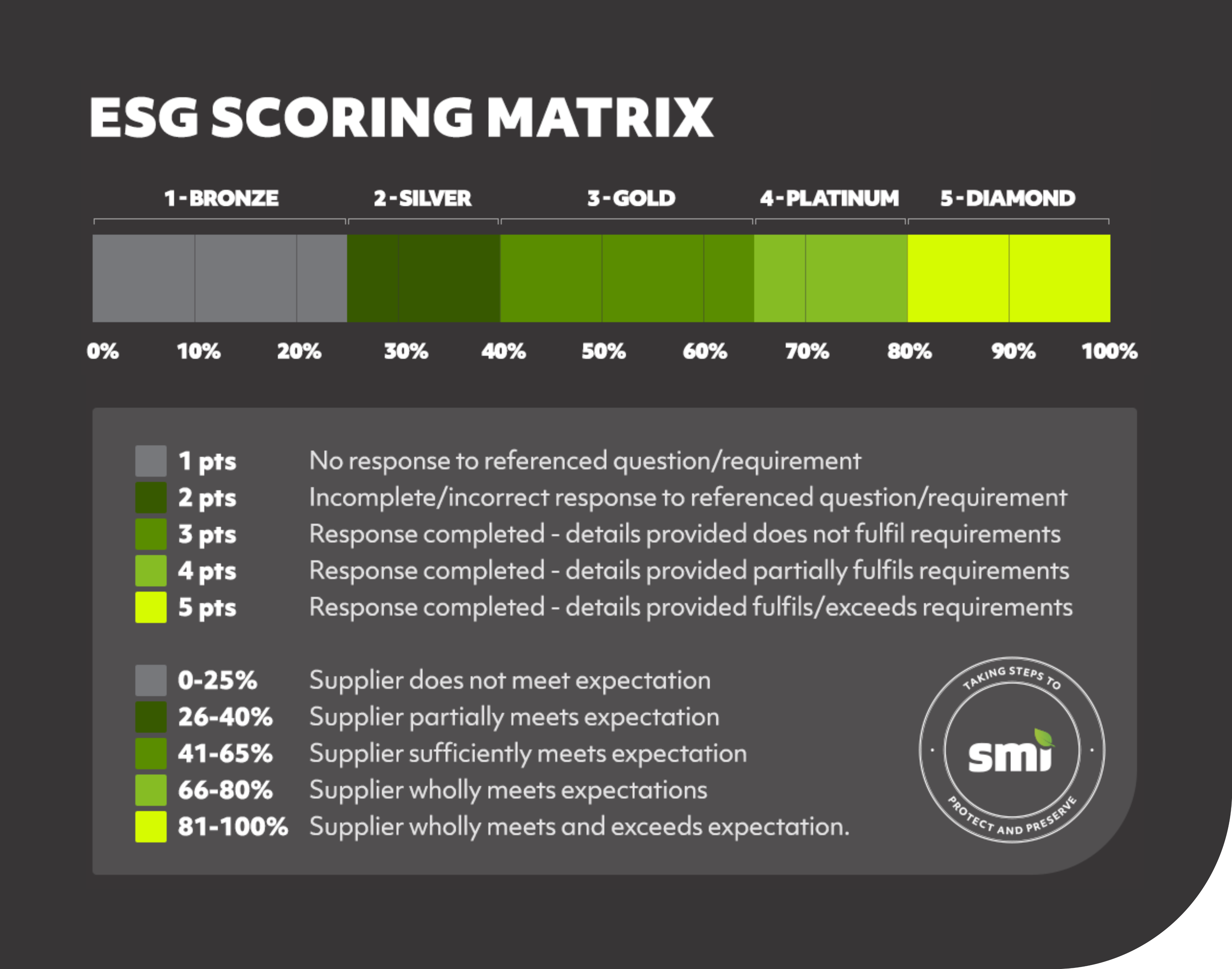SMI's responsible Sustainable Partner Strategy
3 minute read

SMI’s Responsible Sustainable Partner Strategy (RSPS) outlines what we need from our business partners, so that we can focus on holding one another accountable for our environmental and social impact on our people and on the wider community.
The strategy is designed to ensure that we collaborate with business partners who share our commitment to sustainability, ethical practices and environmental responsibility and to support our value chain by maintaining strong relationships, upholding an open line of communication and recognising the evolving trends and nature of all partners.
It relates to all our business partners, no matter their size, turnover or the number of employees and covers both tier one suppliers (those providing products or services directly invoiced by SMI) and extends to tier two and three suppliers, including component manufacturers and suppliers.
The focus is on building long-term, mutually beneficial relationships with suppliers, manufacturers, and other stakeholders who contribute to creating a more sustainable future.
THE THREE PILLARS BUILDING OUR RSPS

The strategy is centred around the goal of sourcing all raw materials, products, and services in a responsible and sustainable manner. We require all our partners to prioritise ethical labour practices, promote fair trade, and uphold human rights throughout every level of their supply chains.
Our partners are expected to maintain transparent practices and regularly report on their sustainability efforts. We track progress, innovative and sustainable technologies being utilised and ensure accountability across all stages of the supply chain.
SMI foster open dialogue with our partners to share best practices, provide support, and help them build their own sustainability capabilities.

SMI'S SCORING MATRIX
We have implemented a comprehensive self-assessment which allows SMI to evaluate supplier performance, helping us to manage risks, strengthen supplier relationships and ensure compliance with regulatory requirements and our sustainability targets.
The RSPS self-assessment is based around five key pillars:
- Business ethics and human rights
- Health and safety
- Energy and climate initiatives
- Waste management
- Supply chain component mapping
- Product emissions (life cycle analysis)
- Community impact and biodiversity commitment
Each question on the assessment is measured against these key pillars and has a maximum of five points.
The scores are then combined and the total score, then recorded as a percentage, is measured against our RSPS scoring matrix to determine the overall banding assigned to the business partner.

The results are shared with both SMI and the business partner with the criteria against each score identified and both parties have complete visibility of the indicating facts.
We work closely with all partners to improve their scores when necessary and will never publicly share a business partners score unless prior permission is given from the required person within that business.
If any partner would like to promote their score, SMI can provide an RSPS certification displaying the weighted score against each pillar.
We are committed to regularly communicating with our supply chain and providing relevant documentation to ensure our RSPS is embedded across our own business’s daily activities and across our value chain.
The way ESG is integrated into SMI is all tied into our 2030 strategy and the RSPS is no different. At our core, we believe in educating and supporting our partners on this journey and guiding them towards this framework so that we can continue to work together to establish a positive impact on our world and it’s people.
If you’d like to read the full document outlining our Responsible Sustainable Partner Strategy, then click here.